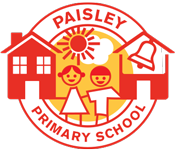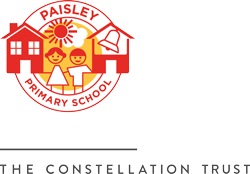

Our LANGUAGES Curriculum
Link – Our curriculum drivers in SPANISH
Link – Paisley MFL curriculum overview
Intent
Our aim is to develop the confidence and competence of each child in the foreign language they are learning. Our goal is for them to be passionate, curious and confident about their own foreign language learning abilities when they finish the primary school phase of their education.
We will help them develop and demonstrate substantial progress in the 3 key language skills necessary for learning Spanish.
- Phonics
- Vocabulary
- Grammar
To develop these key areas, children in Key Stage 2 will learn through Speaking, Reading, Writing, Listening to Spanish.
We aim to ensure that pupils of all abilities develop solid foundations in these key language learning skills – properly preparing them for the next stage of their language learning journey. These skills will develop children’s ability to understand what they hear and read and enable them to express themselves in speech and writing. We will extend their knowledge of how language works and explore the similarities and differences between the foreign language they are learning and English. We will also help strengthen their sense of identity through learning about culture in other countries and comparing it with their own.
Teaching and Learning Overview
Our whole school approach to language teaching and learning is in line with the recommendations of the National Curriculum and the requirements outlined in the Department for Education Languages Programme of Study for Key Stage 2.
The National Curriculum for languages aims to ensure that all pupils:
- Understand and respond to spoken and written language from a variety of authentic sources
- Speak with increasing confidence, fluency and spontaneity, finding ways of communicating what they want to say, including through discussion and asking questions, and continually improving the accuracy of their pronunciation and intonation
- Can write at varying length, for different purposes and audiences, using the variety of grammatical structures that they have learnt
- Discover and develop an appreciation of a range of authentic writing in the language studied.
By the end of key stage 2, pupils should be able to:
- Listen attentively to spoken language and show understanding by joining in and responding.
- Explore the patterns and sounds of language through songs and rhymes and link the spelling, sound and meaning of words.
- Engage in conversations; ask and answer questions; express opinions and respond to those of others; seek clarification and help.
- Speak in sentences, using familiar vocabulary, phrases and basic language structures.
- Develop accurate pronunciation and intonation so that others understand when they are reading aloud or using familiar words and phrases.
- Present ideas and information orally to a range of audiences.
- Read carefully and show understanding of words, phrases and simple writing.
- Appreciate stories, songs, poems and rhymes in the language.
- Broaden their vocabulary and develop their ability to understand new words that are introduced into familiar written material, including through using a dictionary.
- Write phrases from memory, and adapt these to create new sentences, to express ideas clearly.
- Describe people, places, things and actions orally and in writing.
- Understand basic grammar appropriate to the language being studied, including (where relevant): feminine, masculine and neuter forms and the conjugation of high-frequency verbs; key features and patterns of the language; how to apply these, for instance, to build sentences; and how these differ from or are similar to English.
Implementation
Spanish is taught in a whole-class setting by the class teacher or HLTA and is therefore not reliant on one key member of staff.
The Language Angels scheme of work is used to support planning and delivery of Spanish.
The lessons are designed to motivate, captivate and interest children from the first moment. They have clear, achievable objectives and incorporate different learning styles. SEN children have access to the curriculum through a range of strategies appropriate to their need.
Each class has a timetabled lesson of at least forty-five minutes per week.
Teachers are encouraged to use Spanish throughout the week in appropriate contexts, for example in greeting or classroom commands to consolidate knowledge and provide a meaningful opportunity for the children to use the target language.
Spanish lessons include:
- PowerPoints and interactive whiteboard materials
- Interactive games (which pupils can access from home to consolidate their learning)
- Songs & raps
- Differentiated desk-based consolidation activities
- Worksheets at different levels of challenge are provided throughout each teaching unit and can be used in class or can be sent home to be completed as a homework exercise
Each lesson will focus on a combination of the 3 key language learning skills.
As Spanish is being taught for the first time in 2021-22, all children will begin at similar starting points and will progress through the year focusing on similar units. The pace of progression is expected to be more rapid for older children. The Long Term Plan will be modified to take further account of prior learning in 2022-23. In addition to this, due to Paisley’s mixed year group classes, the curriculum will be organised over a two year cycle which will ensure appropriate coverage for all pupils.
Impact
Written work will be completed in the children’s exercise books. Teachers are also encouraged to record children’s speaking and listening exercises.
Assessment of Pupil Learning & Progression
The Language Angels scheme provides detailed skills-based assessments using bespoke skills assessment worksheets. This form of assessment enables us to determine the learning and progression of all pupils in the key language learning skills as well as monitoring their progress against the 12 attainment targets stipulated in the DfE Languages Programme of Study for Key Stage 2.
Further information
